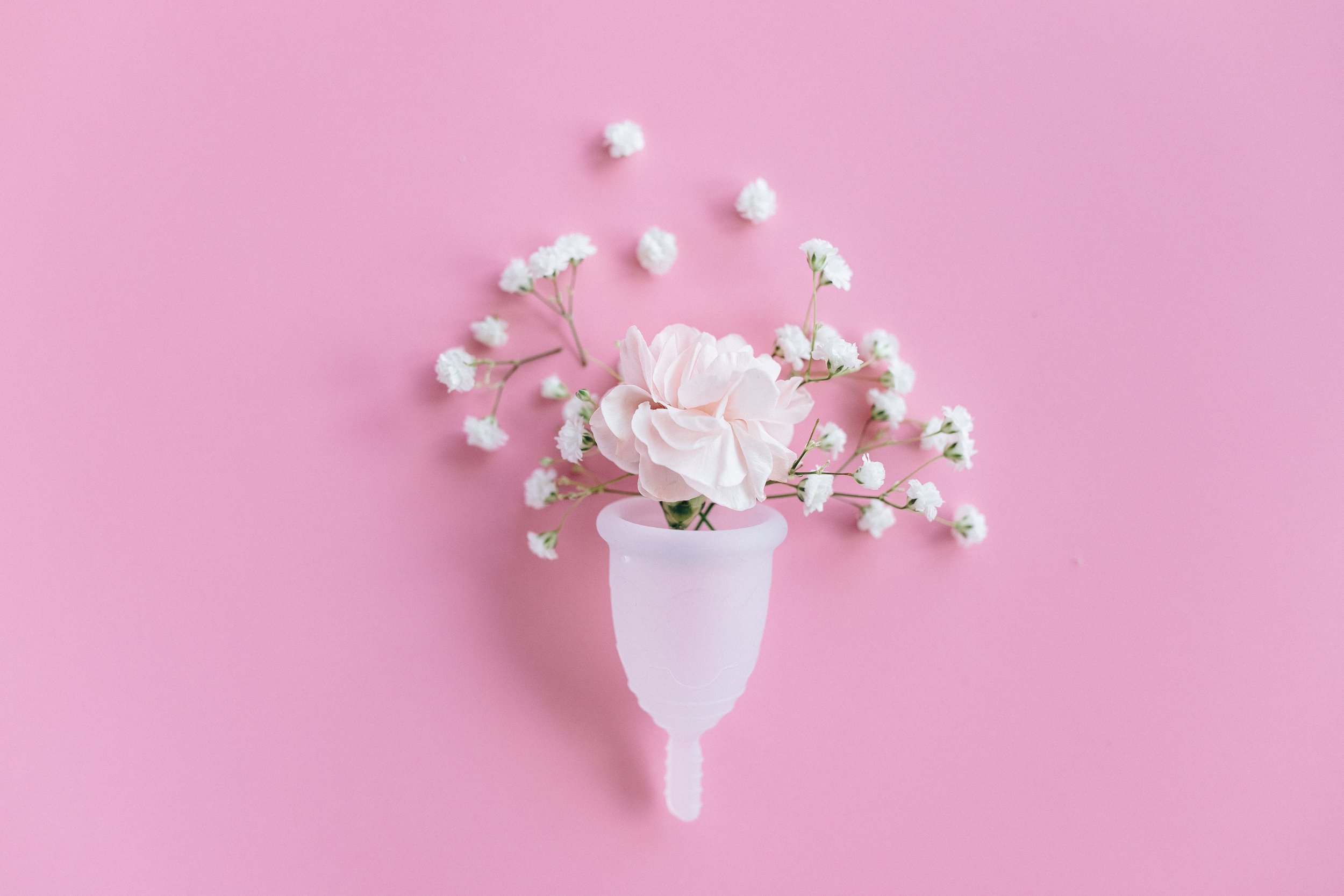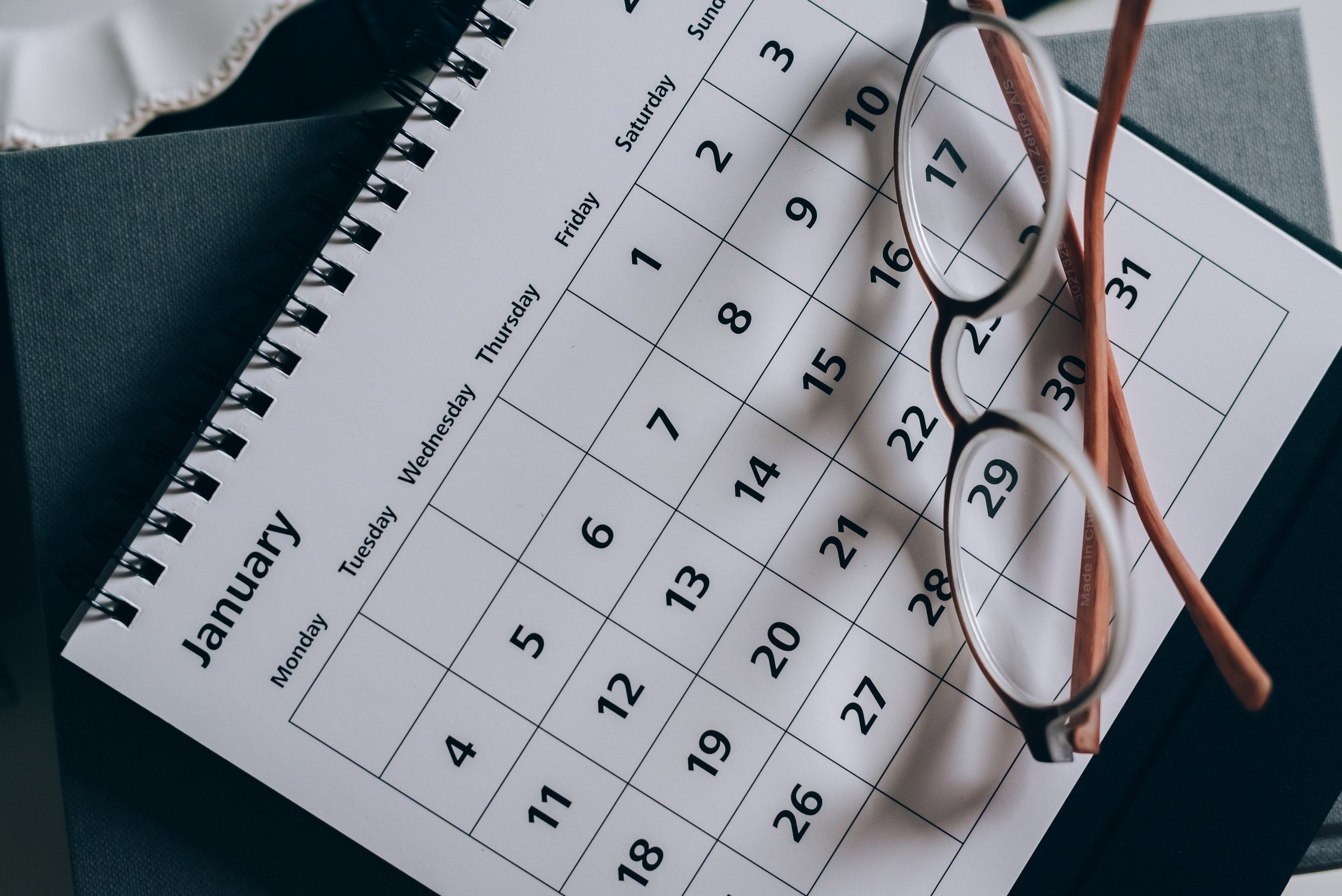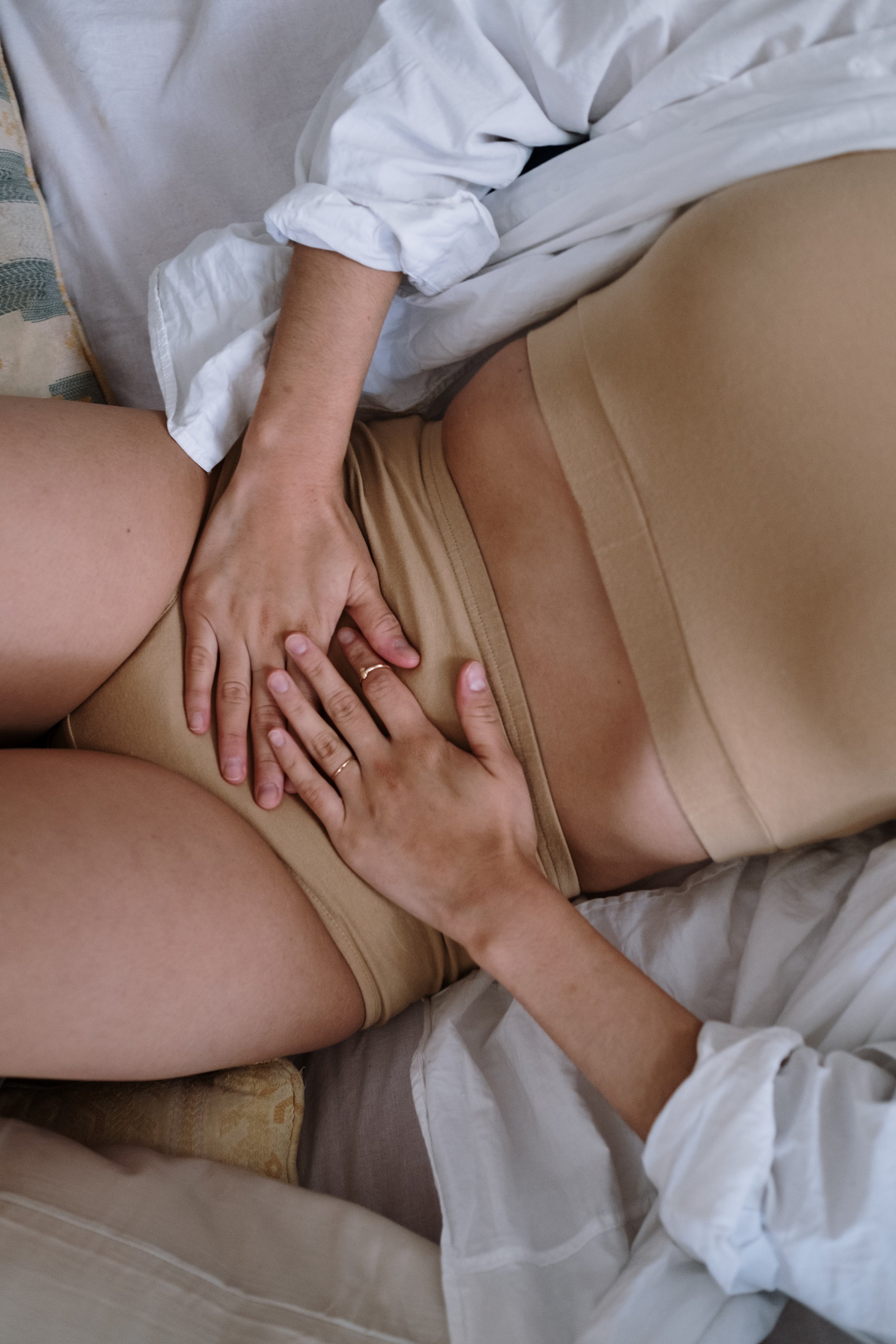What Does Irregular Bleeding Mean?
Your period, Aunt Flow, shark week…you know the names, and what they mean. We’re talking all about your period. More specifically, we’re talking period blood and what it means if you have irregular periods.
I know, I know, TMI…but it’s your body, and it’s beautiful. Learning more about your period and what it has to say puts the power back in your hands - as it should be. Let’s get down to it and ask the important questions like, do I have PCOS? Is my birth control working? And, why am I bleeding so early?
You ready boo? Let’s get to the bloody bottom of it all! (sorry not sorry)
What is a Period and Why Do We Get It?
Your period, also known as menstruation, is the very first part of your cycle. Your first full flow day of red blood is known as Cycle Day 1. This is the start of a cycle through the four phases of the menstrual cycle. These phases include follicular, ovulatory, luteal, and menstrual.
Society has led us to believe that periods are gross, unnatural, and something to be hidden. And that is the complete opposite. Truly, f*ck that!
Periods are a beautiful and unique part of being a woman. Having periods means that we can bring life into this world!
Not to mention, having your period also brings about the beautiful benefits of your hormones working together in sync. When your hormones are flowing as they should in your cycles, and you live in cyclical balance, we see incredible benefits such as glowing skin, better energy, less anxiety, better sleep, and higher libido. SOLD!
Not to mention, that the American Academy of Obstetricians and Gynecologists now states that, “your period may be used as a vital health sign. Anything from the length of your cycle to the textures and colors you see may indicate something important about your health.”
A female-only, critical vital sign? Yes, please!
But, what if your period isn’t those things? Don’t worry babe, this isn’t anything to be ashamed of. In this modern world, which is filled with endocrine disrupters and imbalanced nutrition, our hormones aren’t quite up for the challenge in many cases. Yet, don’t fret sister. There are answers, and you’re not in it alone.
Between quality supplements, improved nutrition, cyclical living, and minor changes in your day to day, your period problems can turn into period positives.
But, before we can get there, let’s talk about period problems like PCOS and why our periods may be irregular.
What If I Bleed Before My Period?
I hear you babe, and you’re not alone there. Tons of women are asking themselves, why am I spotting? But there are a lot of possibilities to this question. Bleeding before your period, also known as mid-cycle bleeding, can mean a variety of things. Here are some of the most common reasons for mid-cycle, irregular bleeding:
Breakthrough Bleeding This can be the drop in estrogen that happens right before ovulation, a missed hormonal birth control dose, or hormonal imbalances like PCOS. In this case, it’s good to evaluate your birth control or consider hormone testing if concerned. I’m happy to point you in the right direction. This can look like a full-on period or a spot on the tissue paper.
Ovulation Bleeding Ovulation is a kick-ass and high-key violent event when you think about it. When you ovulate, the egg bursts through its follicle. Sometimes, this can lead to a bit of bleeding. Typically, this bleeding isn’t much more than a drop or two and won’t last more than a couple of days.
Implantation Bleeding* Does spotting mean you’re pregnant? Babe, I know this one we’ve all Googled before, the notorious, am I pregnant? While it is possible to have implantation bleeding, much like ovulation, the bleeding is rather minuscule and less common.
Anovulatory Bleed This type of bleeding happens when your body skips ovulation altogether. Your body can do this for a number of reasons such as stress, hormonal imbalances, illness, or conditions like PCOS. My fellow PCOS boss babes know what I’m talking about when I say these bleeds don’t have to stick around.
Physical Changes Your bleeding could come down to other physical challenges happening inside your uterus and vagina. Bleeding could be a result of fibroids, polyps, endometriosis, cervical irritation, infections, dryness during sex, or a number of other physical factors. When in doubt, ask your physician babe.
Whatever your reasons for mid-cycle bleeding and spotting, there’s always a cause and it’s not in your head babe. And if you’re one of my fellow PCOS cysters looking to put an end to these anovulatory or breakthrough bleeds, you don’t have to suffer. You have more options than just hormonal birth control. Learn with me and tons of other cysters who’ve become the boss of their PCOS and kicked random spotting to the curb. Good riddance!
*Quick side note about implantation bleeding. Mid-cycle bleeding is not always indicative of implantation. As mentioned, there are several other factors at play.
Why Is My Period Not Stopping?
If you’ve come to this section you might be thinking, “when will this period end?!” Is having a long period cause for concern?
Long periods are defined as anything over 7 days. But what causes them? “Underlying health conditions that can cause long periods include uterine fibroids, endometrial (uterine) polyps, adenomyosis, or more rarely, a precancerous or cancerous lesion of the uterus.” But it can also be caused by other things like PCOS, hypothyroidism, menopause, perimenopause, hormonal birth control, or a bleeding disorder.
It’s important to take note and speak with your doctor about long periods. According to the CDC, over 7 days of menstrual bleeding “can stop you from living your life to the fullest. It also can cause anemia.” Additionally, prolonged bleeding outside of physical ailments like anemia interrupts all of the fun parts of life too.
If you’re experiencing prolonged bleeding, it’s worth it to contact your physician to find out the next steps. They’ll want to know all about your period lengths and any other symptoms you may be experiencing.
Can Birth Control Cause Irregular Bleeding? Which Birth Control Is Best FOr Irregular Periods?
As we saw in the last section, hormonal birth control can absolutely impact your cycles. To truly understand this, you need to understand how birth control works.
Hormonal birth control works to replace your body’s natural hormone cycles with artificial hormones. To prevent pregnancy, different forms of hormonal birth control work in different ways. The primary method is by stopping ovulation. Unfortunately, it may take a while to find a combination that works well for you and the you may end up trading one set of symptoms for another as you switch pills or methods.
Even worse, for my fellow PCOS cysters, we’re prescribed birth control pretty much immediately as the only treatment option. Many PCOS ladies find themselves in the vicious cycles described above - trying to get one symptom under control while trading off for another.
On the plus side, there are more than a few non-hormonal options that can allow you room to balance your hormones naturally. You can choose from the copper IUD, a barrier method like condoms, or the fertility awareness method, my personal preference. Please take note that the copper IUD may cause intense cramping and prolonged bleeding (we’re talking months here!)
But if you’re a PCOS cyster who’s determined your prolonged or random mid-cycle bleeding is due to hormonal birth control and you’re ready to break up with it - I can help. You don’t have to settle for less babe. The red flags are flying, so let’s dump the side effects and the spotting for good!
DOes irregular bleeding mean I Have PCOS?
Yes and no. It’s true that your bleeding (or lack thereof) can definitely be a sign that you have PCOS. If you’re experiencing mid-cycle bleeding, prolonged bleeding, or no period at all - it’s time to bring up the PCOS conversation with your doctor. From there you can determine what kind of treatment you want to pursue. It doesn’t just have to be birth control or metformin- you have other options on how to get a regular period with PCOS!
If you’ve already been diagnosed as a fellow cyster, I got you, babe. Period problems seem like they are destined to be a part of your life forever from diagnosis. But, they don’t have to be. There are ways to regulate your period with PCOS.
Start taking charge alongside me and other cysters by becoming the Boss of your PCOS. Lose weight, conquer physical symptoms like hair growth or acne, get your period normal, and of course, start feeling like yourself again. We’ve got this babe.




